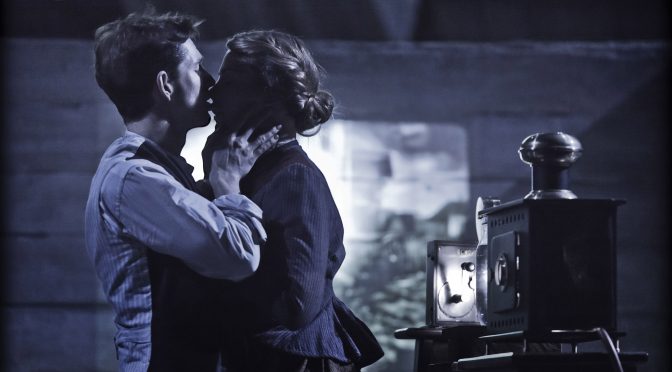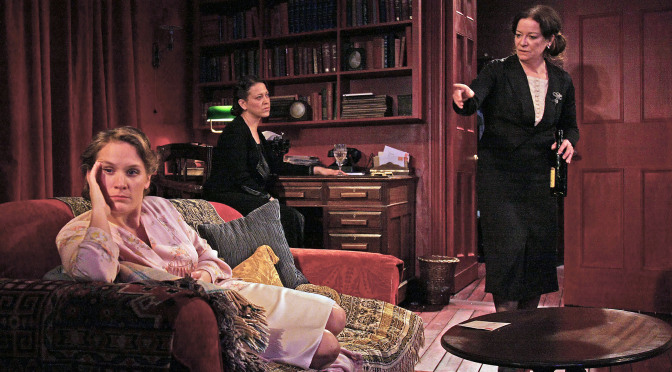Cinema and theatre have always had a close symbiosis. The relationship is often fruitful but, for those who love live arts more, Nicholas Wright’s new play, Travelling Light, about the fascinating early days of the motion picture, is an opportunity to convey emotions and ideas with an intimacy that stage, rather than screen, promotes.
There are moments when Travelling Light uses the power theatre has to grab your attention like nothing else. It’s the tale of Motl Mendl, a Russian Jew, falling in love with the new medium of film and a girl who acts in his first picture. Punctuated with witty observations on the nature of art (a scene of the first focus group for a movie is delightful) and nostalgically interspaced with reflections from Mendl in later life, it’s an interesting story, well told – unfortunately there never seems very much at stake.
Damien Molony and Paul Jesson are both commendable as the flawed hero Mendl and there is a strong performance from Lauren O’Neil as his love interest. But the core of the play is Mendl’s relationship with his first ‘producer’, the rough and ready mill-owner of his hometown performed by Antony Sher. Clearly loving being back on stage at the National, Sher gives a robust, heart-warming performance in a difficult role that could easily turn into parody.
Unfortunately, Sher’s performance is the only thing that makes Travelling Light really compelling. Nicholas Hytner’s direction is clear and concise but the projection of film on to Bob Crowley’s design seems to have missed a trick or two.
Wright’s text seldom rises above the level of entertainment, and that isn’t much of a fault, but we often expect more from theatre, don’t we? It’s a double standard, of course, but Travelling Light is a little too light and this story of moving pictures not moving enough.
Until 6 March 2012
Photo by Johan Persson
Written 19 January 2012 for The London Magazine


